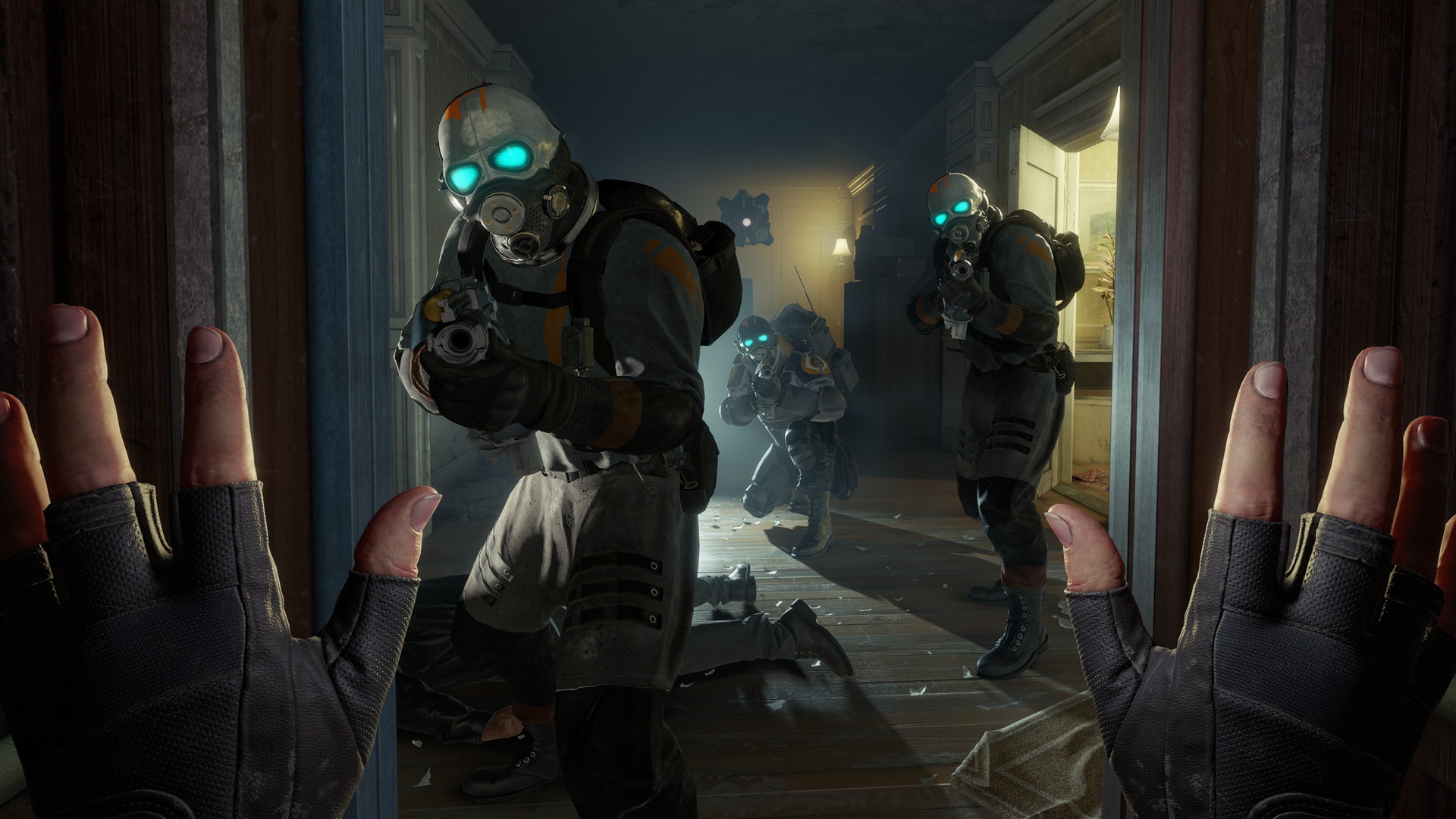VR is over or will the ultimate hope come with Apple’s VR glasses as early as next year?
When the trailer for “Half Life: Alyx” made the rounds in late 2019, the excitement was high. We wondered, “Is this what the future of gaming will look like – using virtual reality to dive into immersive worlds? “
Nearly three years later, VR has been rather quiet, although VR titles are released regularly.
With the announcement of the Apple Vision Pro at WWDC this June, Apple has raised new hopes. “Will everything be better with Apple glasses in the spring?” people wondered. And with Meta Quest 3, the Facebook company released the successor to Meta Quest 2 just a few days ago.
But what can the glasses already do, where do they still fail – and which tech company will ultimately win the race?
VR glasses with OLED displays – and brilliant games?
Whereas the Facebook group is moving rather cautiously in the direction of Mixed Reality with Meta Quest 2 and 3, Apple is daring more with Vision Pro. At Apple, the entire platform is supposed to be based on the fusion of virtual and real space. Accordingly, the interface is designed for the interaction of eye and hand tracking. For comparison: The Meta Quest 3 does not have any eye tracking.
Apple is also a bit ahead of Meta in terms of image reproduction. While the Quest 3 overtakes the predecessor Quest 2 with a resolution of 2,064 x 2,208 pixels, the Apple Vision Pro will most likely set new standards in the field of VR glasses with the built-in Micro-OLED . In other words, you get 4K resolution on every eye with the Apple Vision Pro.
With the so-called pancake lenses, you have less of a bull’s eye feeling with the Quest 3. According to test reports, this makes it much more pleasant to work with Quest 3 at the virtual workplace.
(Metro Cops also rampage through the VR game Half Life: Alyx.)
Gaming, learning and creativity with VR? With the Meta Quest 2, the general consensus is that the Facebook company has succeeded in turning its VR glasses into a VR goggle-like gaming console. Some of the most impressive gaming examples of this include Beat Saber, Demeo – or of course (Half-Life: Alyx).
Built into the Quest 3 is a Qualcomm Snapdragon XR2 Gen 2 chipset The technology promises graphics worth seeing, support for Mixed Reality applications – and should be generally conducive to performance.
However, mixed reality applications are still far from perfect even with the Quest 3. Thus, it can happen that virtual characters merge with your furniture. It is also advisable to clear enough space for Mixed Reality – which presupposes that you have enough free space available. Clean walls can also be an advantage. All this so that the application can scan your room reasonably, define real objects reasonably as such.
(A journey, to the edge of playability? The Meta Quest 3 is also a quasi-gaming console.)
Beyond gaming, there are applications that let you get creative. (“Painting VR “) for example, is a versatile painting program where you can let off steam on the canvas with various brushes. And on mixed reality? There are fun applications like “Figmin XR”, where your floor is covered with liquid lava, decorate your real Christmas tree in virtual space, play dominoes, and more such shenanigans in virtual space. And with (PianoVision) you learn to play the piano with a virtual keyboard, or Tribe puts a DJ set under your nose.
(If you want to unleash your inner Picasso, paint yourself all over the canvas in Painting VR)
Quest 3 vs. Apple Vision Pro: Does the purchase price ultimately decide?
One of the biggest differences between the two high-tech glasses is fiscal: While Quest 3 comes with a slim $500 price tag, you’ll have to shell out $3,500 for a new Apple Vision Pro. If you want, you can spend even more money on the Quest 3. For example, you can buy a special strap for 70 US dollars, a charging station is offered for around 130 US dollars, and so on.
In terms of gaming, titles like Assassin’s Creed Nexus, Asgard’s Wrath 2, or Stranger Things VR awaken desires – and raise hopes. For what? That VR, AR and MR gaming will eventually develop to such an extent that we’ll all be playing in virtual space with tech glasses on our noses like in Ready Player One – and working, and watching movies, and meeting friends … and spending our entire lives there?
Do you have friends, acquaintances, family members who pedal around their homes with VR goggles on their noses? Will you buy the Apple Vision Pro right on release day, or are you happy with a competitor’s goggles? And also: Which games for the glasses have convinced you the most so far? Feel free to write us your opinion on this in the comments.
The post High price, high expectations: Will Apple Vision Pro make everything better with VR next year? appeared first on Global Esport News.



Deixar um comentário